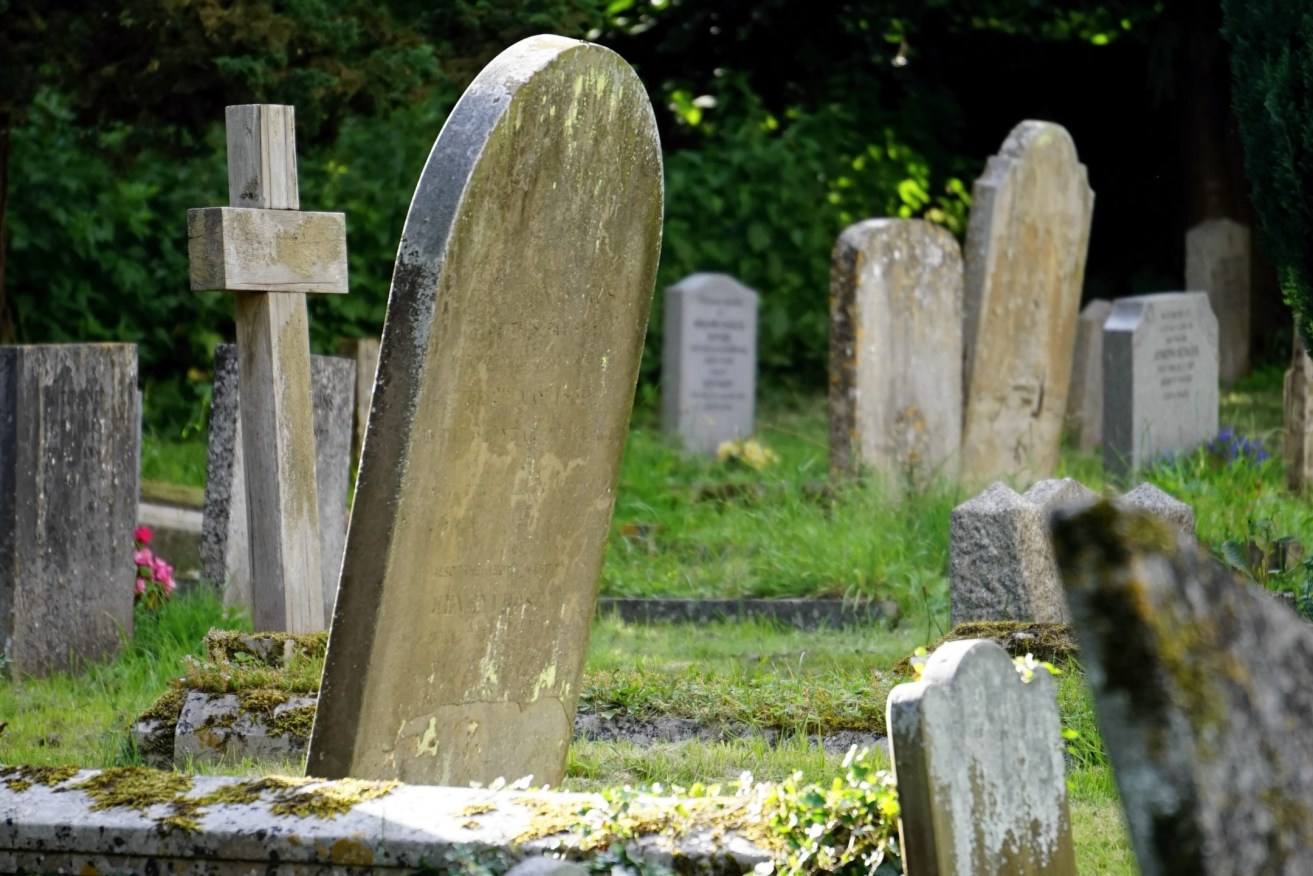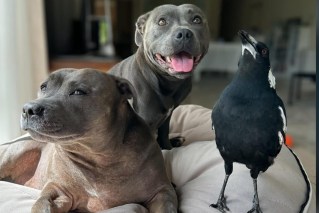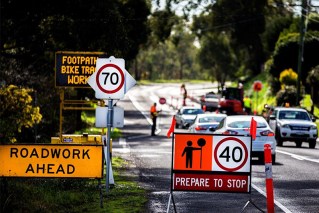Michael Blucher: The rugged, raw beauty of a true bush farewell
Last week I went to a funeral in the bush. Now there’s something I recommend we all do, before somebody puts us in a big wooden box of our own.


There's a rawness on display at a bush funeral that speaks to the ruggedness of rural life.
Funerals in the bush, at least on the strength of last week’s experience, aren’t like a lot of the “send-offs” in the city. There’s a rawness that speaks to the ruggedness of rural life, like people are almost bracing themselves for another big hit. And when it comes, the pain is absorbed, there’s sadness, they have a party, and then they get back to doing whatever they were doing. Until the big hit after that.
I didn’t know Ann well, but it was important to the people who are important to me that I was at her funeral. I loved learning a little about her life.
Ann was a real “bushie”. She’d lived and worked on a 16,000-acre (6475ha) cattle property in western Queensland for most of her 78 years.
Her husband, “that dear old bastard Bill” pegged out 11 years ago. Since then, Ann and her eldest son Angus had shouldered the responsibility of running the family cattle and sheep property.
The last decade has been tough, really tough, but somehow they’ve managed. Bush courage. You could take it to war.
A week or so ago, without warning or fanfare, Ann left the homestead and went for an afternoon stroll. She never returned.
On dusk her son raised the alarm and a massive search party was mounted. Within an hour, 120 locals, police, council workers and assorted volunteers – many of whom had no connection with the family – were searching far and wide, on foot, on horseback, on motorbike, in the desperate quest to find her before she fell victim to the elements.
But all evidence points to Ann not wanting to be found. She was playing a game of hide and seek on a 16,000-acre block of dirt that she knew better than anyone else alive. It was a game she was always going to win.
After almost three days, the search party finally located Ann lying by a dry creek, about 10km from her beloved homestead.
She’d walked and walked until her legs would carry her no further. And then she lay down and died. Peacefully, contentedly, on her own terms.
Ann loved life – every day of it. She’d just had enough. And there was no way known to man she was going to wither away slowly in an institution, or worse still, be remembered as a frail old biddy who’d gone soft in the head.
Instead, she’d stage her own bush burial. Tough as old boots, Ann. Pragmatic to the core.
A crowd of about 350 mourners gathered in the local church to pay tribute to a kind, generous, funny woman who loved a party, loved people, loved animals, but for some strange reason, killed plants. Anytime she arrived home with a fresh batch of pot plants, the response from “that dear old bastard Bill” was immediate: “Where ya going to bury those?” A gifted gardener she was not.
The gathering heard from Ann’s sister and her daughter, then three of her nine grandchildren, who spoke glowingly and stoically of their beloved “Gran Ann”.
There were three things Gran Ann loved more than anything else, her eldest grandson “Woozle”, explained – her property, her family and coffee. “She was never happier than when she was sitting on her veranda, sipping a coffee, telling me stories about the family,” he said. “I loved every minute, even though I’d heard the stories countless times before.”
After the service, the funeral procession crawled its way through the streets, en route to the town cemetery. Local traders closed their doors, others stopped what they were doing to pay tribute to one of their own.
Perhaps they knew Ann, perhaps they didn’t, but at the very least, they knew somebody who was hurting. And pain in the bush is transferable. It’s shared to lighten the load.
One old fella stood beside his lawnmower, still as water, his sweaty hat pinned to his chest as the cars, perhaps 100 of them, rolled gently by his house.
It’s my guess he was just happy to be mowing. He wouldn’t have had to do much of it over the past 10 years – if any.
But there’s been some good rain in the district of late – there were tell-tale puddles still lying by the roadside. Perhaps God’s game of torture and torment is finally over? Perhaps Ann’s already got it sorted? All of Australia hopes so.
I thought of the mower man’s respectful gesture, the readiness to stop and acknowledge the circumstances of others. Imagine that in the city – a cavalcade of cars travelling at 10km an hour down Roma St?! HONK. “Get a move on you muppets. Don’t you know I’ve got a friggin’ meeting to get to …”
No, we wouldn’t cope well. In the city, the “next” is usually more important than the “now”.
At the gravesite, another of the grandchildren, “Gorge” spoke with finality about Gran Ann’s wonderful life, as her coffin was sprinkled with rose petals and lowered gently into the ground, right beside her husband, “that dear old bastard, Bill”.
Knowing she’d be unable to muster words of her own, the teenager quoted noted philosopher, Ralph Waldo Emerson.
“To laugh often and much, to win the respect of intelligent people, and the affection of children, to earn the appreciation of honest critics and endure the betrayal of false friends, to appreciate beauty, to find the best in others, to leave the world a bit better, whether by a healthy child, a garden patch … this is to have succeeded”.
Yes. That was Ann to a tee. All except the “garden patch” bit.
Everybody knew she was a shithouse gardener.













